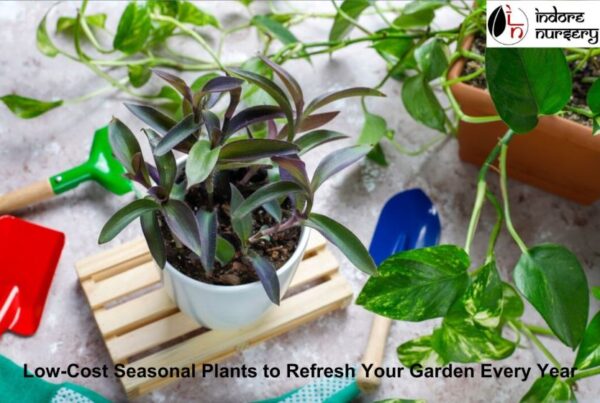Understanding Organic Fertilizers for Indian Soil
What Are Organic Fertilizers?
In India, common types are compost (rotted plant and food scraps), manure (animal poop), green manure (plants like beans grown and then mixed into the soil), and vermicompost (worm poop). These fertilizers make the soil better, increase good microbes, and release nutrients slowly, helping sustainable farming. Organic fertilizers are good for the environment, cut down on chemicals, and help crops grow well. They suit both old and new farming methods, keeping the soil healthy and the environment clean.
Benefits of Using Organic Fertilizers
Organic fertilizers are better than chemical ones for Indian farming. They improve soil health by enhancing its structure and increasing good microbes. Unlike chemicals, they slowly release nutrients, preventing waste and keeping the soil fertile for a long time. Organic fertilizers are eco-friendly, reducing pollution and leaving no harmful residues in crops. They support biodiversity and reduce the need for synthetic chemicals, making farming more sustainable. Using organic fertilizers fits well with traditional farming methods and modern sustainability goals. They help keep the environment healthy, improve crop quality, and ensure the long-term success of Indian farming.
Nutrient Content in Organic Fertilizers
Organic fertilizers for Indian soil give plants important nutrients like nitrogen (for leaves and stems), phosphorus (for roots and flowers), and potassium (for overall plant health and disease resistance). These nutrients are vital for healthy crops in India. Organic fertilizers release these nutrients slowly, so plants absorb them evenly. They keep soil fertility natural, without harmful chemicals. This sustainable farming method ensures plants get the nutrients they need to grow well in Indian conditions, without using artificial fertilizers.
Types of Organic Fertilizers for Indian Agriculture
Compost as Organic Fertilizer
To make good compost in Indian farming, collect kitchen scraps, yard trimmings, and animal manure. Put them in a compost bin and keep them wet. Stir the compost often to help it break down faster. In India, add dry leaves and green waste for a mix of nutrients. After 2-6 months, when it’s fully broken down, the compost improves soil naturally. Use it to make gardens or fields better at holding water and nutrients. This cuts down on chemical fertilizers and helps farming stay sustainable.
Vermicompost: Nature’s Best Fertilizer
In India, vermicomposting uses earthworms to turn kitchen scraps and garden waste into compost.The worms make soil better and increase helpful microbes for plants. To start, set up a bin with bedding like shredded paper, add worms, and keep it wet. As the worms eat the waste, they produce compost full of nitrogen, phosphorus, and potassium. This natural fertilizer improves soil, helps crops grow, and promotes environmentally friendly farming in India.
Biofertilizers for Sustainable Farming
Biofertilizers are natural supplements that improve soil fertility by adding helpful microorganisms. In India, they are important for sustainable farming by fixing nitrogen, making phosphorus easier for plants to use, and helping plants grow. These microorganisms, like Rhizobium, Azotobacter, and Azospirillum, increase soil nutrients and boost crop production without using chemicals. Biofertilizers encourage environmentally friendly farming, reduce the need for artificial fertilizers, and keep Indian soil healthy and productive for a long time.
Application and Best Practices
How to Apply Organic Fertilizers Correctly
To increase crop yield in Indian farming using organic fertilizers, first check the soil to see what nutrients it needs. Figure out how much fertilizer is needed based on the type of crop and the soil condition. Spread the organic fertilizers evenly over the field, mixing them into the soil before planting or as the crops grow. Make sure the crops get enough water to activate the nutrients. Keep an eye on how the plants are growing and change how much fertilizer you use if needed during the growing season. This way of farming helps the environment, makes the soil healthier, and gives the best crop yield in India.
Organic Fertilizers for Different Crops
In Indian farming, choose organic fertilizers that match each crop’s needs for the best growth. Use nitrogen-rich fertilizers such as composted manure or vermicompost for crops like rice and wheat that need lots of nitrogen. For crops like pulses that prefer phosphorus, use fertilizers rich in phosphorus like bone meal or rock phosphate. Crops that need potassium, like potatoes and tomatoes, do well with organic options containing potassium, such as wood ash or banana peels. Using the correct organic fertilizer for each crop helps them grow well and produce more in Indian fields.
Challenges and Solutions
Overcoming Challenges in Using Organic Fertilizers
Using organic fertilizers in Indian farming can be tricky due to availability, cost, and effectiveness. Sometimes, it’s hard to find organic fertilizers, and they might be more expensive than chemical ones. However organic fertilizers work well to make soil healthier and help plants grow naturally. They release nutrients slowly, which makes crops grow better over time. Even though there are challenges, using organic fertilizers supports sustainable farming and cuts down on harmful chemicals, which is good for farmers and the environment in India.










Recent Comments